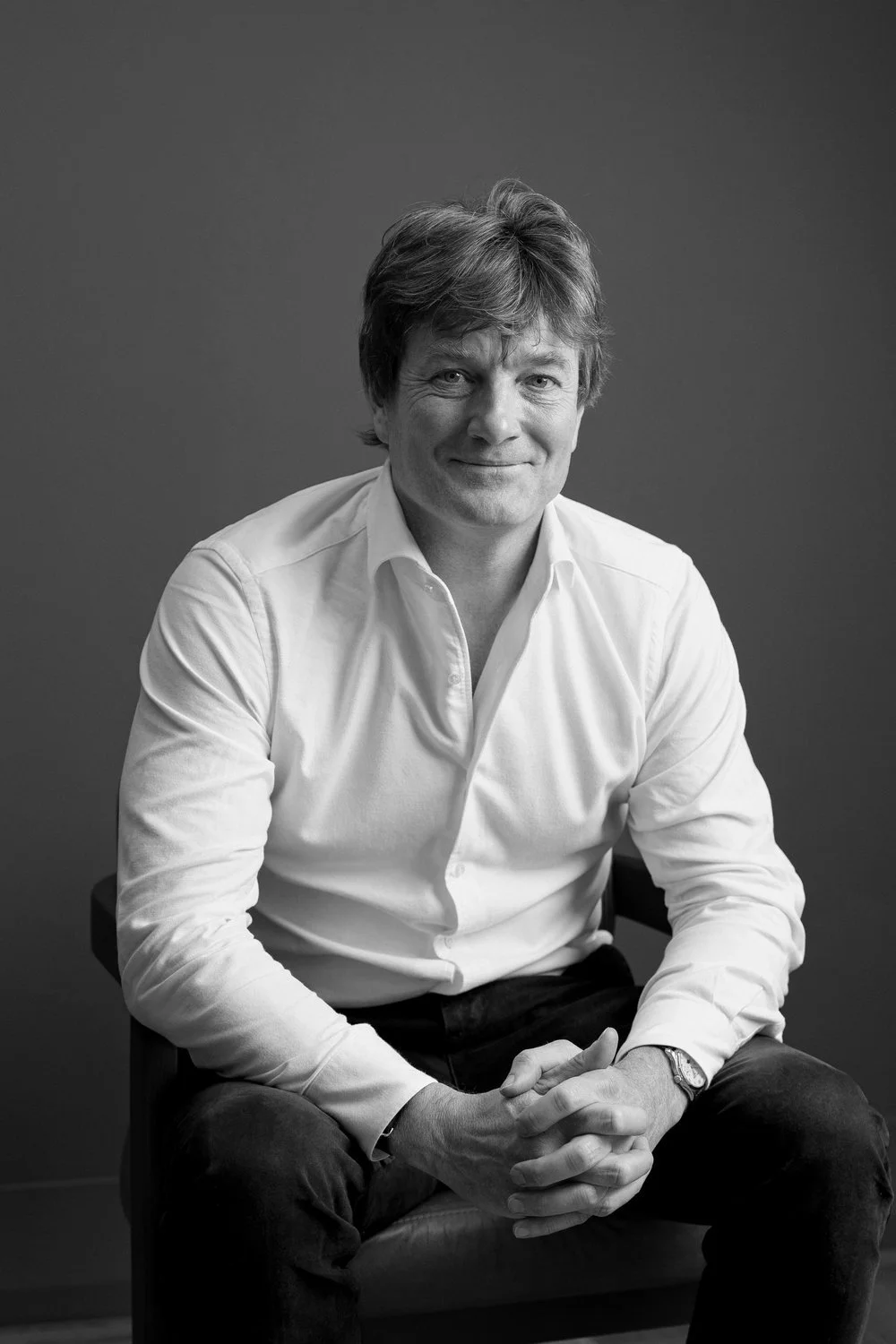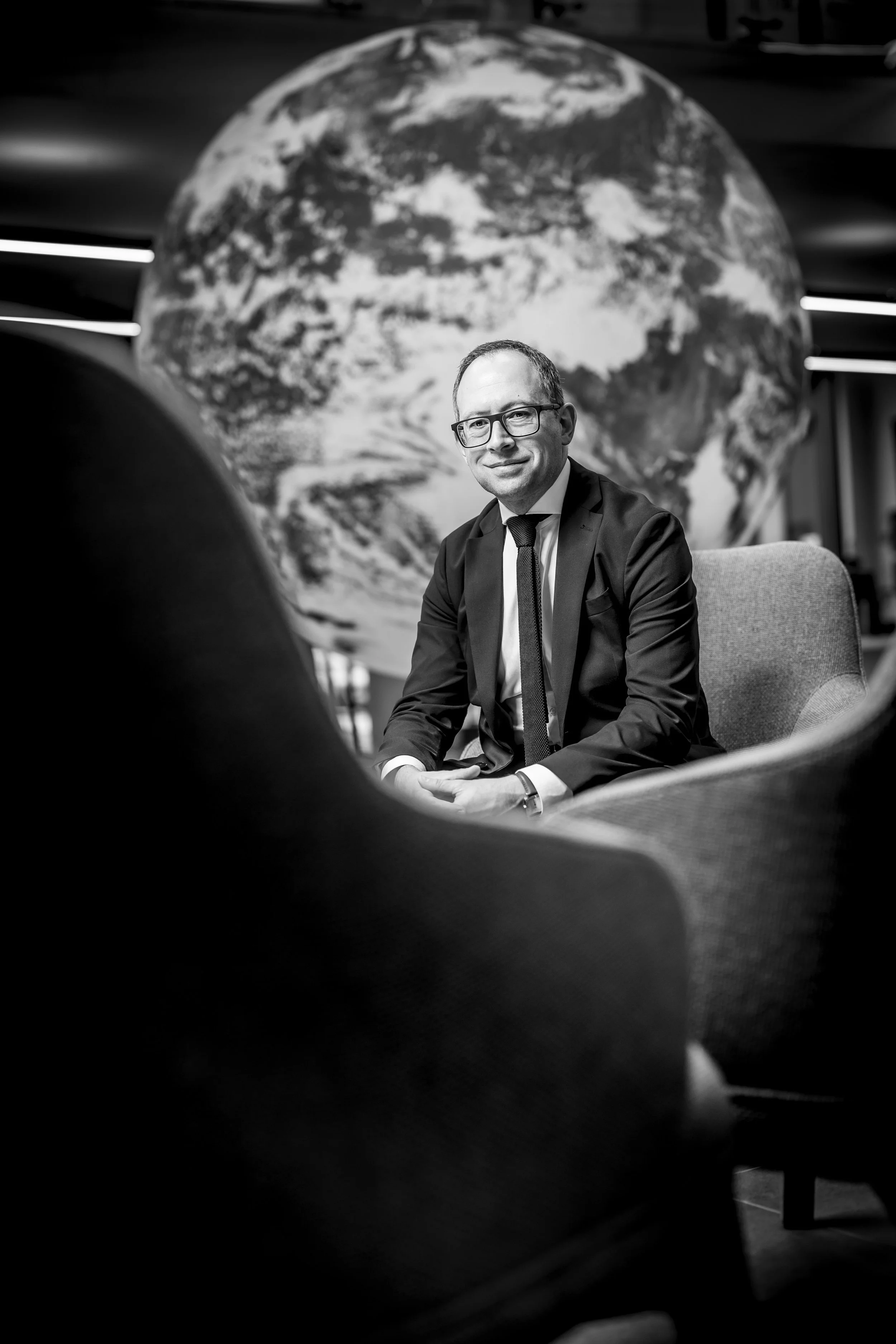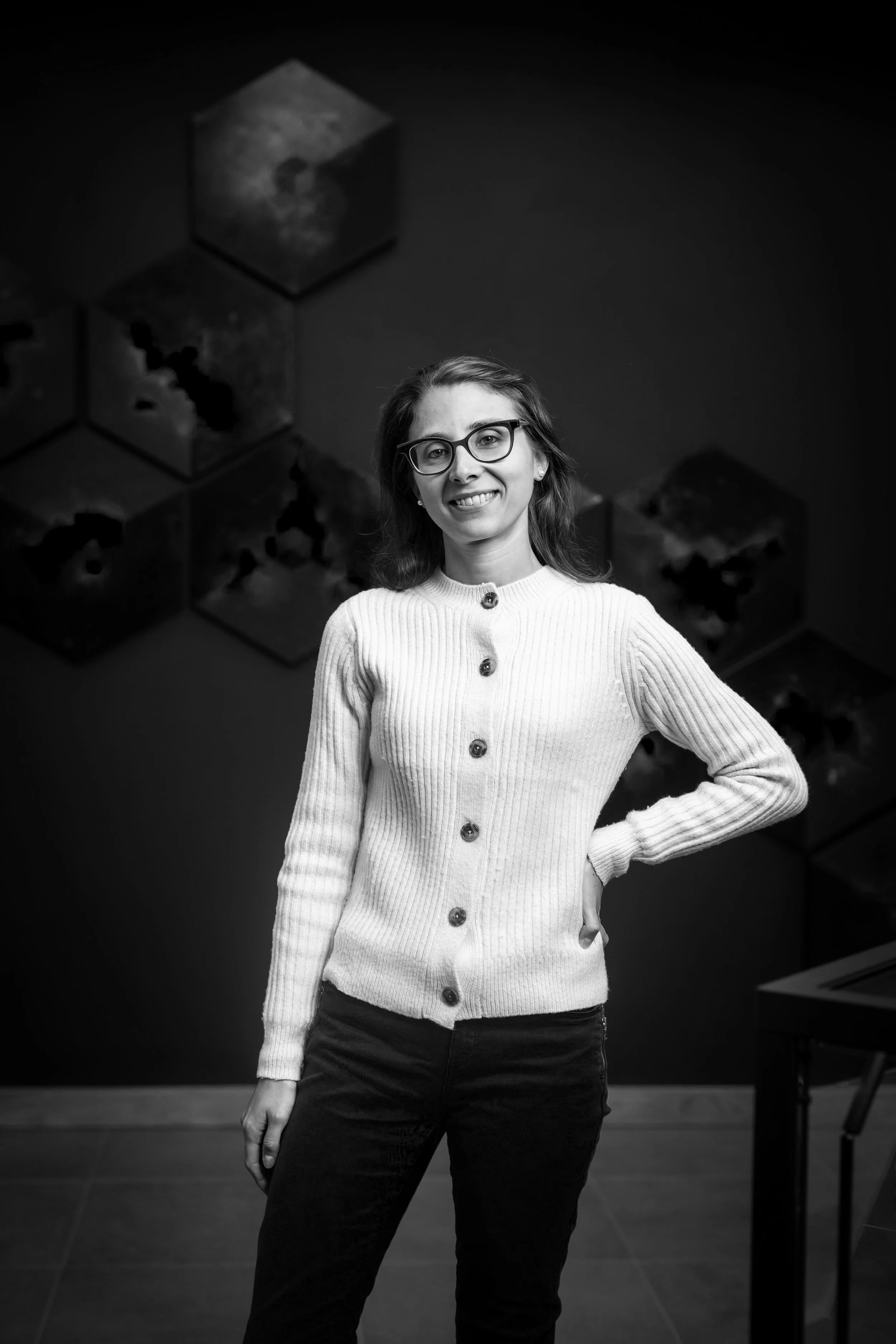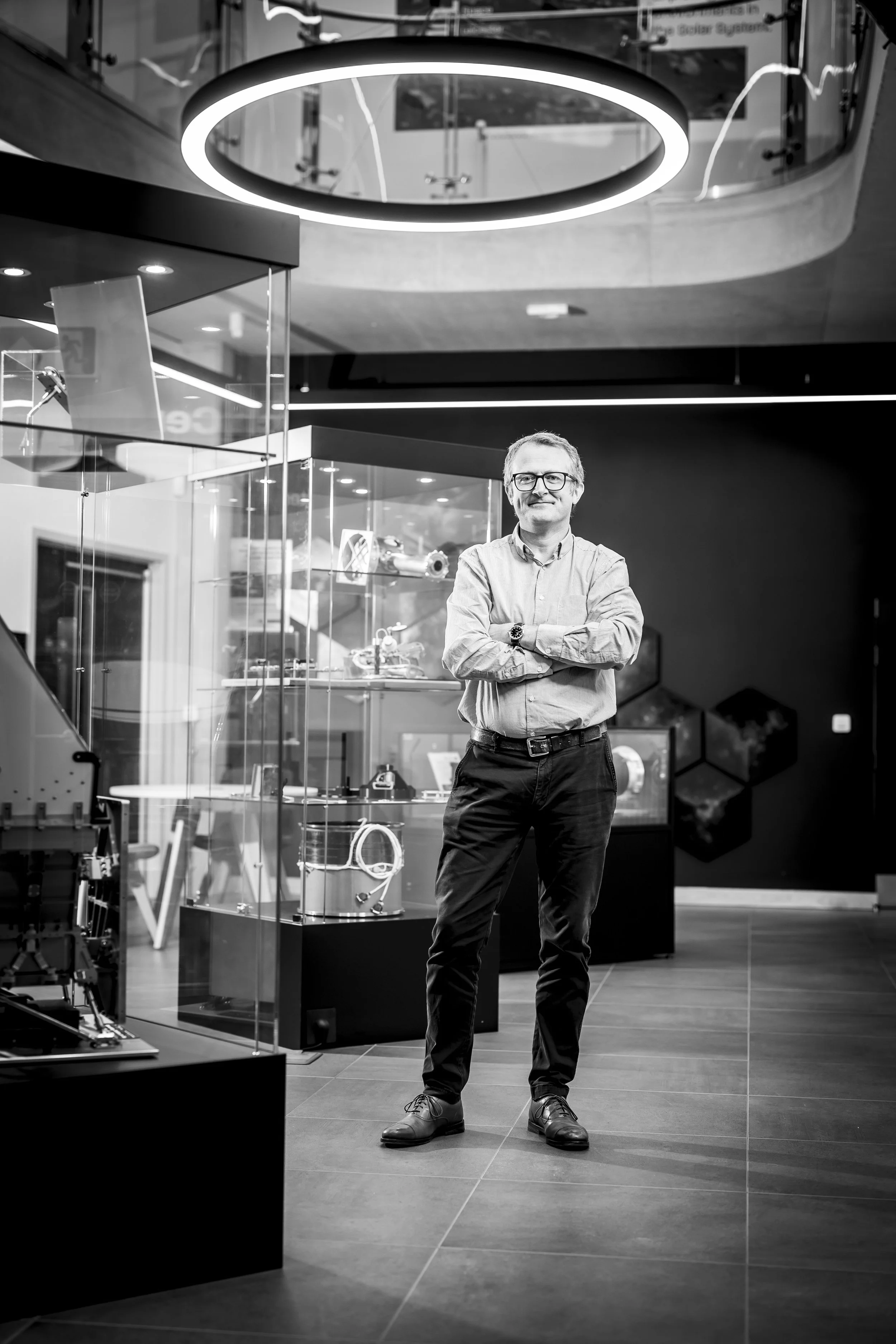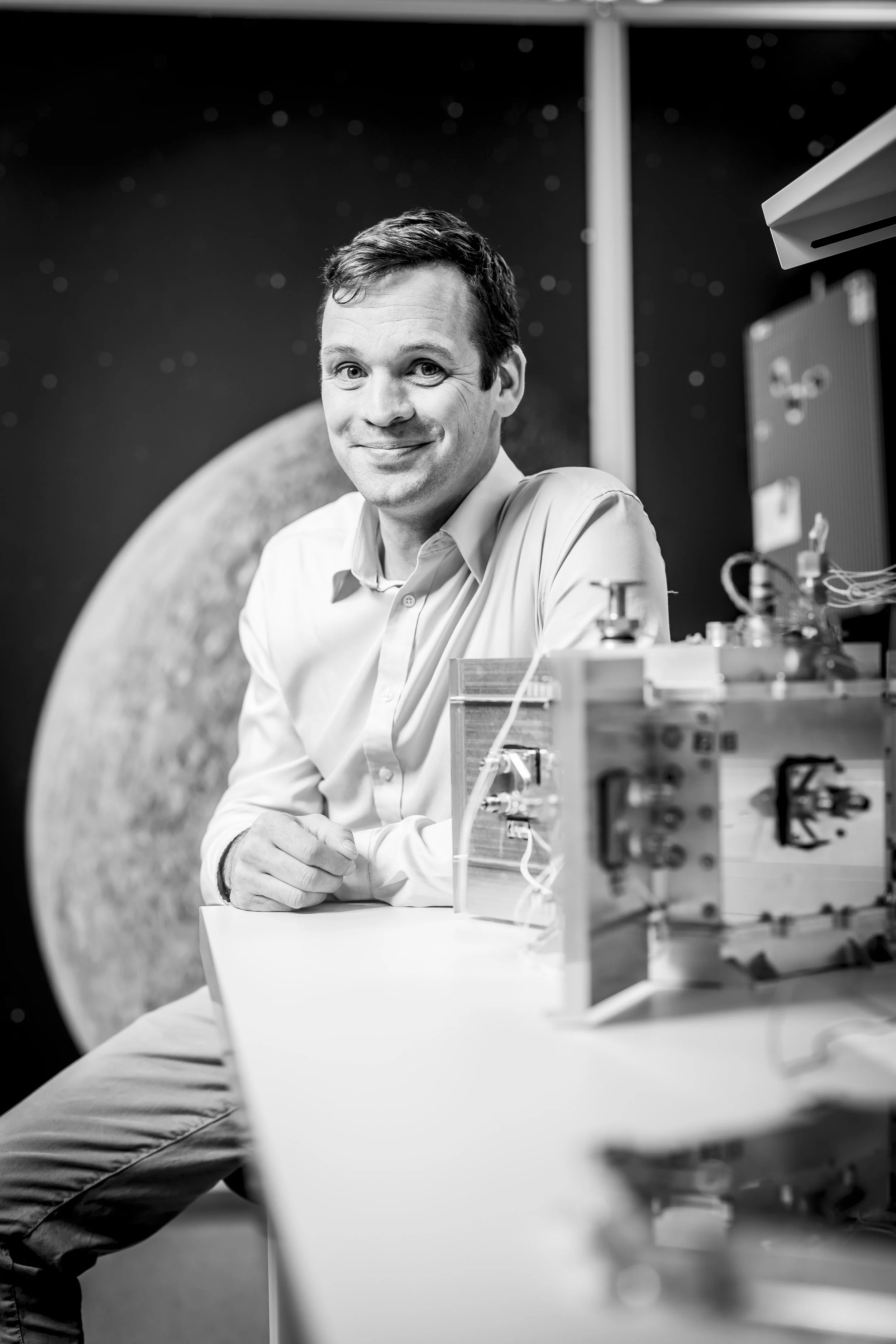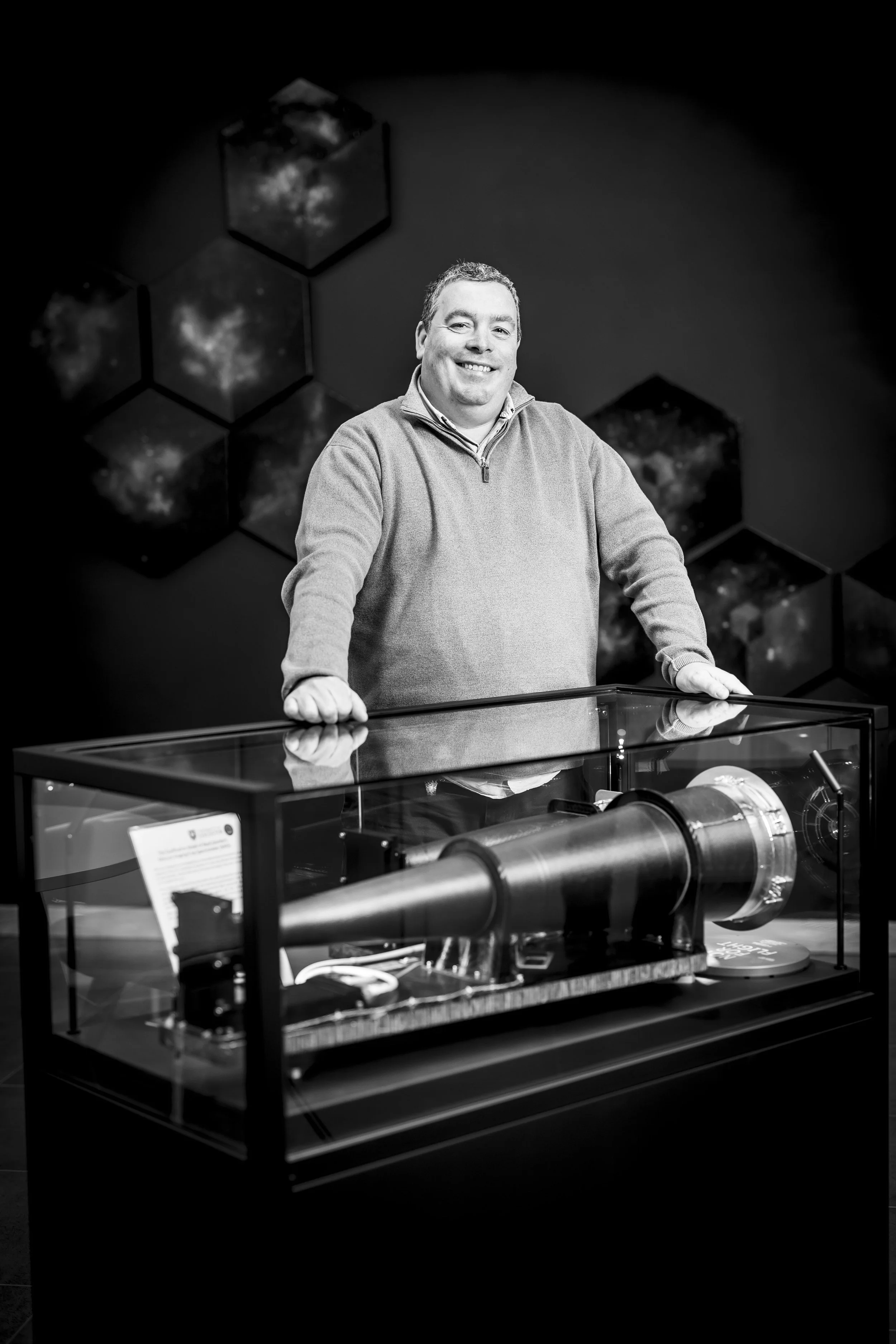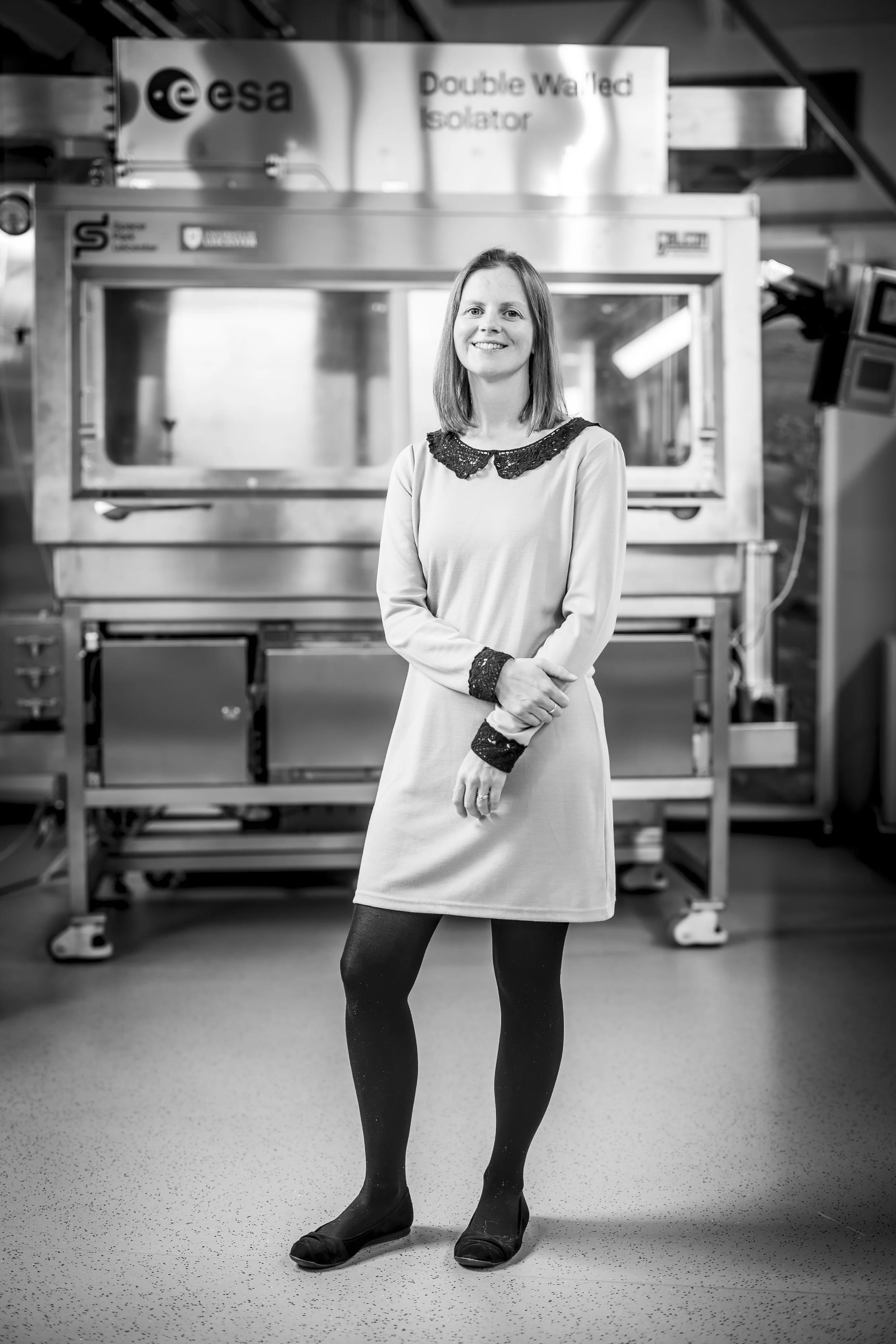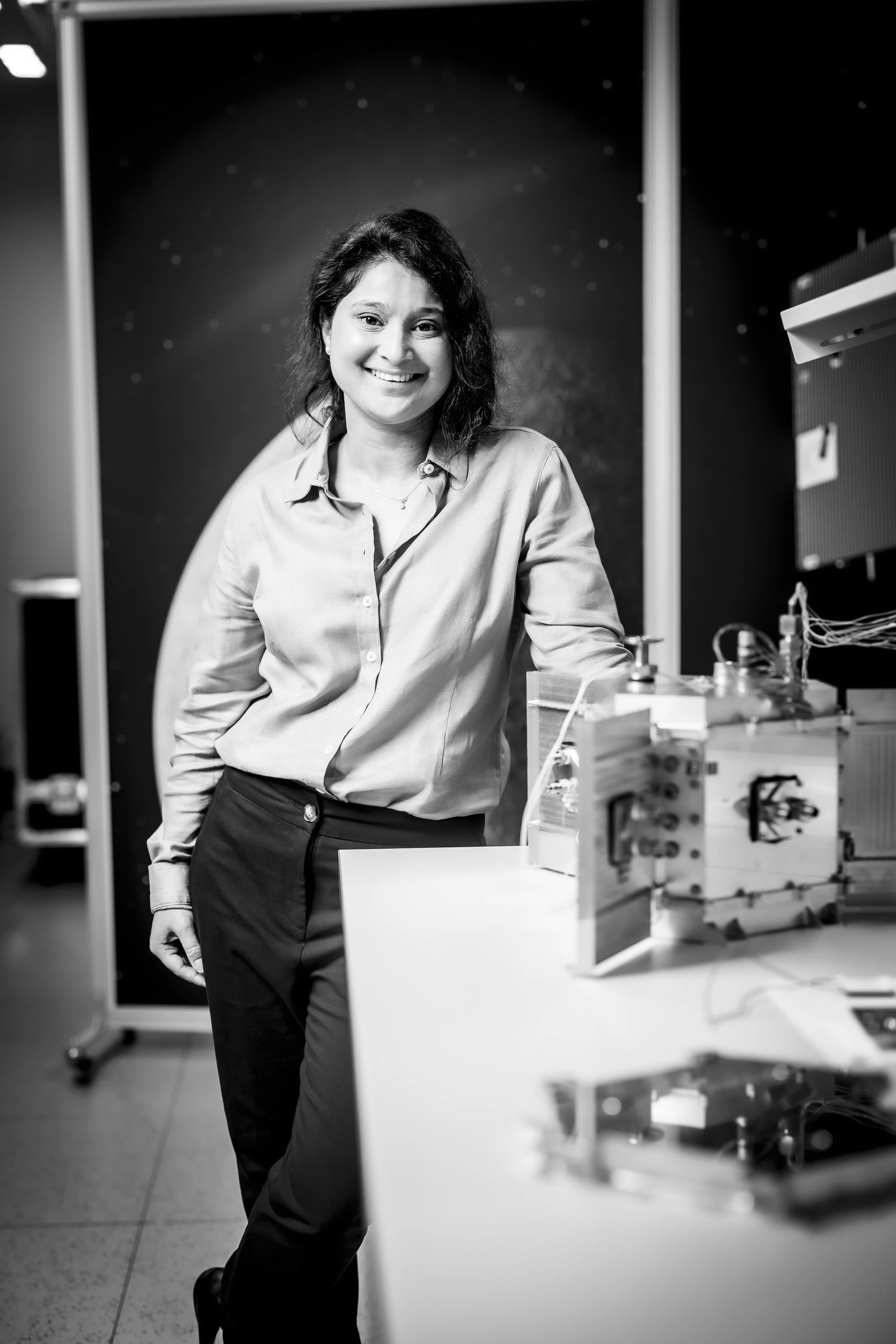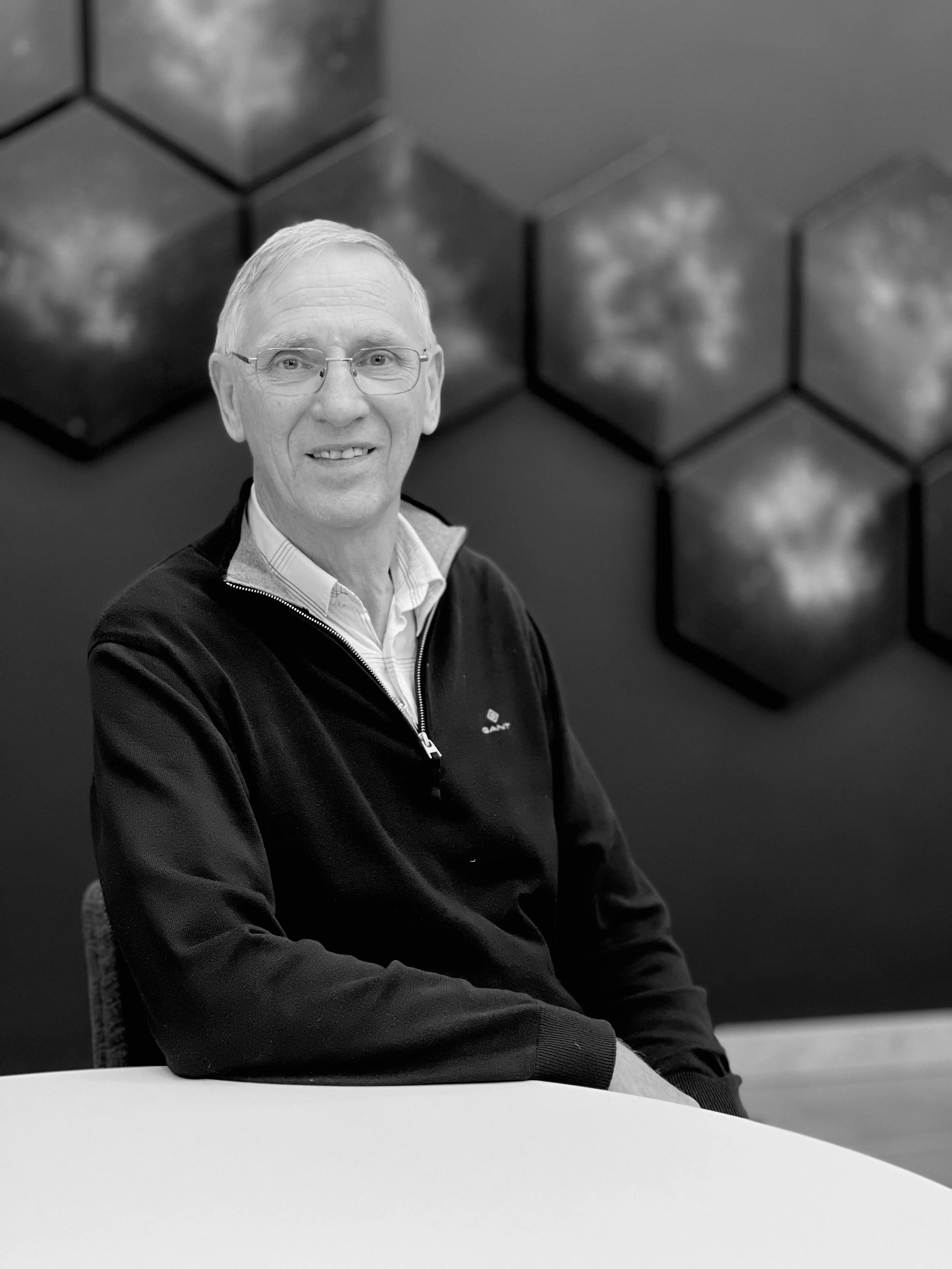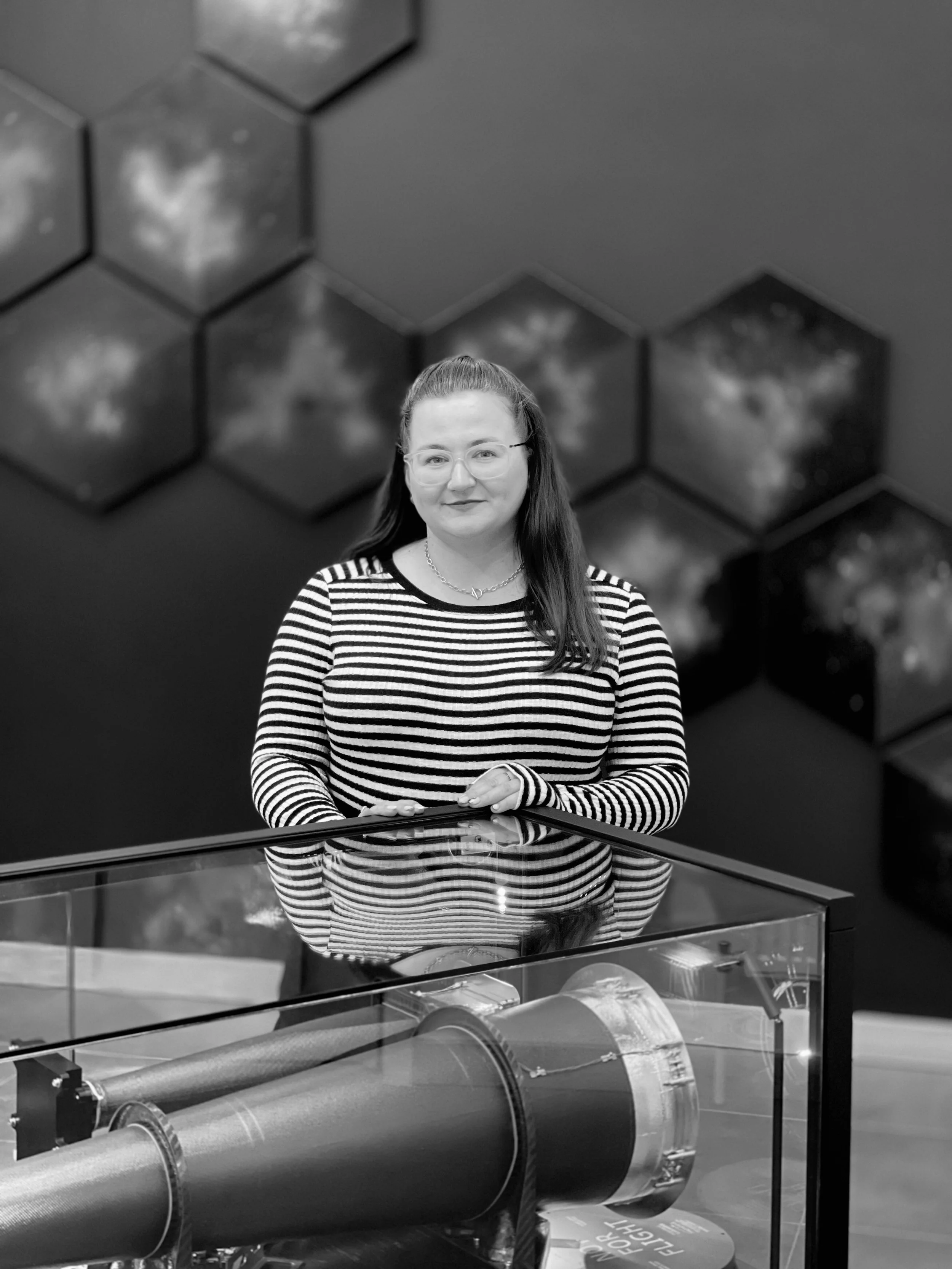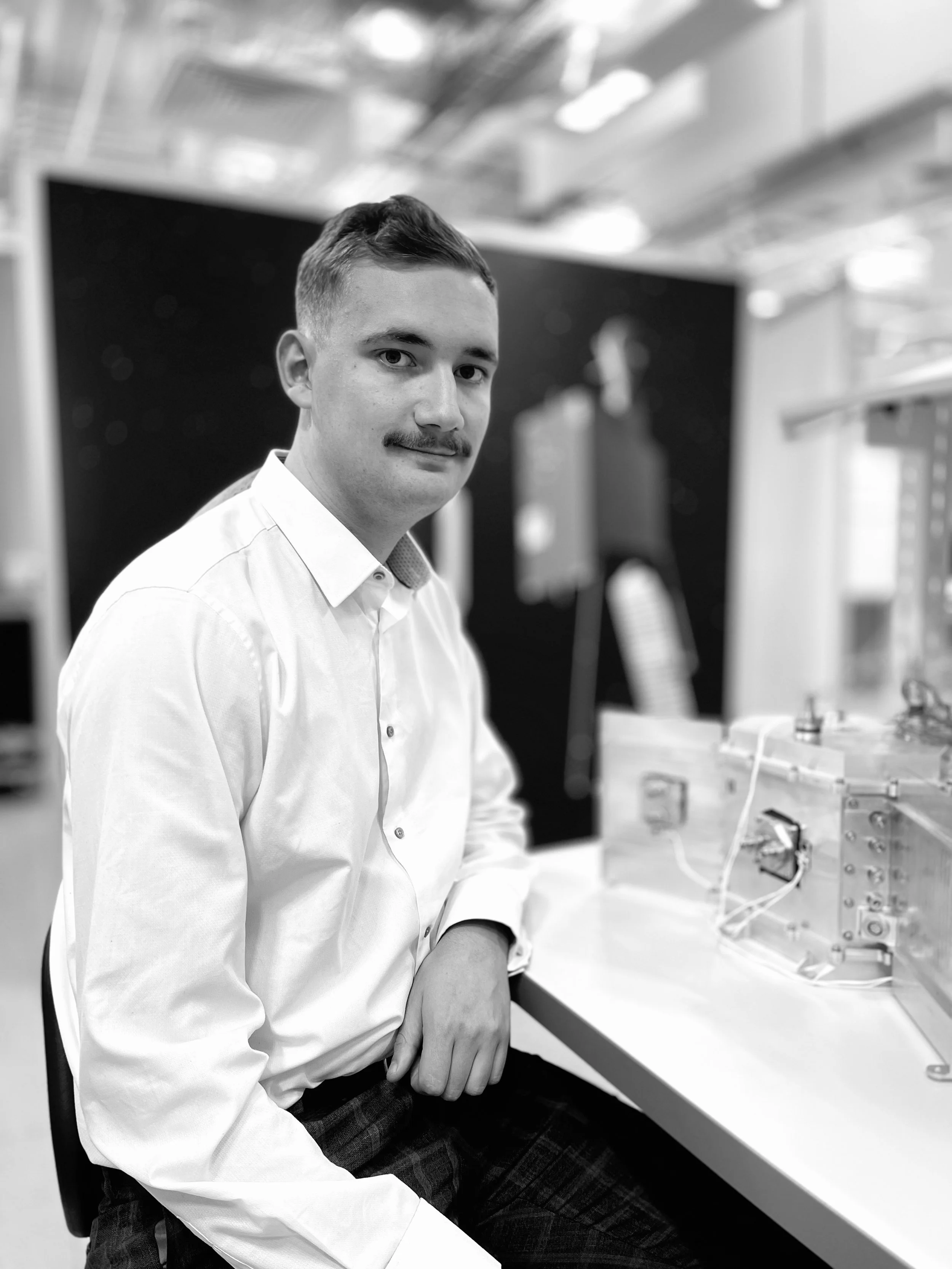
Team
The team has more than 200 staff years of collective experience in space science, space exploration, and space technologies with involvement in many successful European, and joint European-US collaborative space missions. The team has been directly involved in the 11 instruments built by the University of Leicester that are currently in operation in space. The team has almost two decades of know-how and expertise on radioisotope power technologies through sustained funding from the European Space Agency and UK Space Agency.
The team is focused on transforming international collaboration and cooperation between the private sector academia and agencies to play a key role in making space more accessible to all.
Founders
-
Chief Exectutive Officer
Founding Reef Estates in 2001, trading as Reef Group from 2017, Piers grew the business to a significant and respected real estate operation with over £2Bn under development management. In 2024 he is joined by Reef colleagues to co-found the next iteration, Reef Origin. Responding to macro changes driving the global economies, Reef Origin provides platforms with both operational and specialist expertise with a completed portfolio value exceeding £20Bn under development management, increasingly focuses on the life science, knowledge, Industry 4.0, digital and energy infrastructure and venture capital sectors.
His investment philosophy operates at the crossroads of the digital, knowledge, carbon and real asset economies. Whilst still operating in the traditional real estate and hospitality sectors he increasingly focuses on the life science, knowledge, Reef 4.0, digital and energy infrastructure and venture capital sectors.
He is a Chartered Surveyor and holds a BSc (Hons) in Estate Management from Liverpool John Moores University and a MSc in Property Investment (Finance) from City University.
Piers is a founding investor and Board Director to the sustainable space exploration company, Global Space Futures, nuclear space and terrestrial energy company, Perpetual Atomics and carbon credit platform Xange.com.
He sits on the Boards of Didcot First and Stevenage Development Board.
-
Chief Scientific Officer
Science, Instrumentation, Technology, Automation, Productivity. The ‘space economy’ as the next frontier for cooperation and exploitation. Richard Ambrosi, Professor Space Nuclear Power and Space Instrumentation, is our resident expert in space exploration. He leads on these key issues for the space sector, as part of his work at the University, but also as a key national and international space advisor.
Richard obtained his PhD from the University of the Witwatersrand, Johannesburg South Africa. After working on the development of fast neutron resonance radiography imaging systems he moved to Leicester to work on the Swift Gamma Ray Burst Observatory X-ray Telescope as CCD calibration scientist. Between 2003 and 2012 he worked on ESA's GAIA mission and the Rosalind Franklin Mission X-ray Diffraction instrument MARS-XRD.
Over the past 20 years, Richard has been leading the development and testing of space nuclear power systems designed to exploit of waste heat from the radioisotope americium-241 as part of a European Space Agency (ESA) program. He is currently leading the team working on the radioisotope heater unit for the Rosalind Franklin Mission that will launch in 2028 to Mars as part of an ESA-NASA mission as well as the flight radioisotope heater unit for the ESA lunar lander Argonaut to launch in 2031.
Richard has several decades of experience in various leadership roles including Executive Director of Space Park Leicester, the £100M flagship space science, innovation, technology center and collaboration environment. Richard currently holds a number of formal roles in the University Space Research Association and has held numerous roles on national and international committees.
-
Chief Technical Officer
Ramy has extensive experience in aerospace engineering and material science with over a decade’s worth of experience developing space nuclear powered technologies and materials for space agency funded programmes. He spearheads cutting-edge research and development initiatives, driving advancements in materials science, nuclear system design and sustainable heat-to-power conversion technologies for both space and terrestrial markets. With a Master’s degree in Aerospace Engineering from the University of Manchester, a PhD in material science from the University of Leicester, and numerous scientific journal publications to his name, Ramy is passionate about pushing the boundaries of the art of the possible.
Ramy’s proficiency in applying advanced mathematical and analytical models to solve thermomechanical problems, complements his ability to translate design concepts into real systems. His extensive experience in thermoelectric and other radioisotope conversion technologies is complemented by. his collaborative leadership style, fostering innovation within cross-functional teams across academia and the private sector. Ramy is passionate about mentoring the next generation of aerospace professionals and volunteering in STEM education programs.
-
University of Leicester Director
William is the University of Leicester’s Commercial Director. His activity covers a wide range of commercial areas: managing a team; developing commercial/collaborative partnerships with industry; developing commercial propositions and business plans; developing products and services; and delivering a strategy to support sustained research and enterprise growth within the college. Over the past 5 years he has been the commercial lead on the University’s Space Park Project.
William graduated with a federal history degree from the University of London in 1994 and he completed an executive MBA with distinction at Leicester Business School in 2004. He is a fellow of the Chartered Management Institute.
-
Director Systems, Launch Safety & Regulation
Alessandra received her PhD from the University of Leicester in 2023, and a Master’s degree in Aerospace Engineering from Politecnico di Torino in 2014. Following a stint at Thales Alenia Space in Turin (Italy) on the Rosalind Franklin Mission she moved to the University of Leicester in 2016. Since then she has been part of the team developing space nuclear power systems as part of a European Space Agency funded program. Her contributions were initially focused on the thermo-mechanical analysis and testing of radioisotope thermoelectric generators and heater units. In 2018, as part of a collaboration between the University of Leicester and ArianeGroup supported by ESA, she started to work on the safety aspects related to the use of these systems in a space mission, and she now leads and manages all aspects of nuclear and launch safety for radioisotope power technologies. More recently, she has led the development of the concurrent design facility at Space Park Leicester and has participated in over half a dozen CDF mission studies including 4 at the European Space Agency.
-
Finance Director
Ed comes from a background in audit and risk management from his time as an Audit Manager for Smith & Williamson (now Evelyn & Co) in London and at Goldstein Golub Kessler LLP in New York preceding his role as Group Financial Controller for Financial Objects Limited (now part of Tenemos UK Limited) before joining Reef in 2006.
Aside from the traditional Finance Director and compliance roles Edward and the team are also heavily involved in the due diligence at purchase and corporate transactions. This includes reviewing and preparing business plans, financial risk management, appraisals and cash-flow forecasts for our transactions to measuring and analysing the projected returns from our development and investment activities.
As Finance Director, Ed leads all tax structuring and funding of transactions working closely with institutional and private clients.
Ed studied Geography as a degree at Kings College London and is a qualified Chartered Accountant (ACA).
-
Head of Electrical and Electronics Engineering
With over 24 years of experience at the University of Leicester's Space Research Centre, Chris brings extensive expertise to Perpetual Atomics. His distinguished career includes contributions to numerous high-profile ESA, NASA, and international space projects, such as the Beagle 2 probe, the NASA Swift Mission, the ISRO-led Astrosat mission, ESA’s Bepi Colombo mission to Mercury, and the James Webb Space Telescope’s Mid-Infrared Instrument. He has also played a key role in several recent European missions involving soft X-ray imaging telescopes.
Chris holds a BSc from the Open University and has excelled in pivotal roles including Flight Electronics Technician, Electronics Engineer, and Product Assurance and Safety Engineer. These positions have equipped him with a comprehensive skill set in space technology, ensuring the highest standards of safety and quality in mission-critical environments.
His technical expertise and dedication to advancing space research have been instrumental in the successful delivery of multiple space instruments. At Perpetual Atomics, Chris looks forward to leveraging his extensive background to drive innovation and contribute to the company’s pioneering efforts in space technology.
-
Head of Precision Manufacturing and Welding
Gareth is a highly accomplished Manufacturing Manager with over a decade of experience in delivering components for spaceflight. He has provided manufacturing support for four recent European space missions and a range of ground based telescopes and ESA projects. Gareth also has a strong background in conducting extensive ground-based technical development in welding processes and procedures. Beyond his impressive experience in aerospace, he is a co-inventor of a ground-breaking medical device, highlighting his versatility and commitment to innovation across multiple sectors. He adeptly leads a diverse and talented team comprising experienced CNC programmers, engineering machinists, and skilled welders who specialise in high-precision manufacturing techniques. This includes advanced CNC operations that are crucial for producing intricate components.
Driven by a commitment to innovation, Gareth consistently harnesses the latest cutting-edge manufacturing technologies and techniques, employing a meticulous zero-defect approach to manufacturing processes. His unwavering focus ensures that every component produced not only meets but exceeds the highest standards of quality and reliability that the Space industry demands.
Passionate about both aerospace and aviation, Gareth is also a qualified pilot who enjoys exploring the skies across the UK and Europe, further deepening his appreciation for the industry.
-
Chief Manufacturing and AIV Engineer
Tony Crawford is a distinguished Chief AIV Engineer at the University of Leicester, boasting an impressive 24-year career dedicated to developing space flight hardware. His extensive expertise spans numerous high-profile projects, underscoring his crucial role in advancing space instrumentation.
Tony has worked in over 15 space missions and projects over 24 years including the James Webb Space Telescope Mid Infrared Instrument with extensive campaigns supporting the mission at NASA Goddard. Tony has extensive expertise in working with highly sensitive space instrumentation in a recent range of ESA space projects involving soft X-ray imaging optics, Tony was responsible for all of the procurement, assembly, and testing phases from the Structural Thermal Models (STM) through to the Flight Models (FM) and subsequently supporting instrument integration and spacecraft integration. Tony’s responsibilities extend to optimizing designs for manufacturability and assembly, ensuring the instrument meets rigorous spaceflight standards.
In his role on the Space nuclear power RTG/RHU projects, Tony has overseen the development of prototypes, focusing on manufacturing procurement, assembly, and testing, while continuously enhancing design processes. His contributions have been pivotal in advancing these technologies.
Tony’s expertise also encompasses facilities management, vibration, thermal vacuum, and bakeout processes. He played a crucial role in the design and development of workshops, labs, and clean rooms at Space Park Leicester, demonstrating his versatility and commitment to fostering cutting-edge research environments.
Tony’s portfolio includes significant contributions to working with ISRO on ASTROSAT mission, Earth observation science spectroscopic instruments a number of ESA planetary science missions (including Bepi Colombo), Beagle 2 and the NASA Swift mission.
Tony Crawford's career is marked by his technical proficiency, leadership, and dedication to advancing space exploration technology, making him an essential part of the University of Leicester's space research initiatives.
-
Director of Space Missions and Technology Applications
Dr Hannah Sargeant has a PhD in Planetary Science specialising in In Situ Resource Utilisation (ISRU), and she is involved in a range of international research activities focussed on lunar science and exploration. She has been awarded the Amelia Earhart Fellowship and Forbes 30 Under 30 for her work. Hannah is leading a number of projects funded by the UK Space Agency International Bilateral Fund relating to the applications and advancement of space nuclear power technology. As part of these projects Hannah is leading all of the international partner interfacing that spans industry and academia.
Hannah has extensive expertise in the field of lunar resources, with a particular interest in accessing and utilising water and oxygen on the Moon. Alongside her research Hannah has been involved in supervising undergraduate and graduate students conducting lunar resources related projects. Hannah has previously a member of the LEAG (Lunar Exploration Analysis Group) Executive Committee, and served as a trustee of the Breaking Ground Trust, an organisation looking to demonstrate sustainable methods of handling space resources. More recently Hannah has been chairing the UK’s ISRU Representative Group, formed in 2023 given the importance of ISRU within the UK’s national space strategy.
Hannah has an undergraduate degree from University of Sheffield, qualified as a teacher from Loughborough University and worked as a physics/science teacher in the Midlands. Subsequently obtained an MSc in Space Exploration Systems at the University of Leicester and a PhD in Planetary Science in 2020 from the Open University. Hannah’s oxygen/water extraction research will be trialled on the Moon with the ProSPA instrument. Hannah worked as an intern at the Lunar and Planetary Institute in Houston Texas and as a postdoctoral researcher with the LUVMI-X rover team and more recently before moving back to Leicester, Hannah worked as a postdoctoral researcher at the University of Central Florida on a number of space resources projects.
-
Head of Electronics Production
Duncan has more than 30 years of experience as a senior technician and head of electronics production, having joined with a background and education in electrical and electronic engineering, radar systems design, manufacture and test from the Marconi group.
Duncan’s role in the group has several streams including but not limed to the following : electronics production facility manager; high reliability printed circuit board production; harness construction; mechanical design; support equipment; health and safety.
Duncan has extensive expertise in specifying, developing, implementing and maintaining electronics manufacturing methodologies and facilities. His expertise in printed circuit board design, layout and production spans: multilayer PCBs: materials selection and specification; rigid, multilayer, semi-rigid, ceramic and flexible circuit designs; surface mount and through hole assembly to ESA ECSS standards supported by ECSS accreditation in assembly and inspection. Duncan has extensive expertise in space flight harness construction, enclosure manufacturing and mechanical design including addressing thermal and fluid flow requirements.
-
Chief Systems Engineer
Principal Engineer for Space Projects at the University of Leicester, Roisin has over 15 years of experience in the space sector working across industry and academia. After graduating from the University of Southampton, Roisin worked at Airbus Defence and Space as a thermal engineer and mechanical project engineer on a range of space projects and missions including telecommunications satellites. In 2015 Roisin moved to RAL Space as a Systems Engineer working on a number of space missions including Solar Orbiter and Sentinel 5. More recently Roisin has been the Principal Engineer for Space Projects at the University of Leicester. Her diverse career has seen involvement in about half a dozen space missions and numerous space projects.
-
Head of Nuclear Fuels
Emily Jane has been a full-time member of the radioisotope power systems team for more than a decade. Her PhD focused on the development of surrogates for pure americium oxides for radioisotope power systems (RPS). Emily Jane’s current research is on americium based oxide materials, and novel radioisotopes concepts including their surrogates for powering space applications. Her experience includes material synthesis, powder characterisation, leading sintering studies and pellet characterisation. Dr Watkinson was a visiting scientist at the European Commission Joint Research Centre (EC JRC) Karlsruhe between 2018 and 2020. She led studies to determine thermal properties of a high americium content Am U oxide and its compatibility with the RPS clad material. Dr Watkinson has experience in working at a large scale nuclear laboratory as well in a university active facility. Her recent research has involved developing a novel surrogate for Am U oxides, and determining novel data about the RPS clad material. Emily Jane’s role within the Leicester team has included oversight of the fuel specification for the radioisotope power systems and supporting the fuel development programme in collaboration with industry. Emily Jane supports RPS enabled mission studies.
Emily Jane has a First Class Honours Masters in Physics. She is a Lecturer in the Space Projects Instrumentation group at the University of Leicester’s School of Physics and Astronomy. Emily Jane has responsibilities across a range of physics courses, including the MSc in Space Exploration Systems.
-
Programme and Project Manager
Joanna has over a decade of experience managing Engineering and Technology Development projects across both industry and academia. After graduating from the University of Nottingham with a Master’s degree in Mechanical Engineering, she joined the Manufacturing Graduate Scheme at Rolls-Royce. There, she worked on several Capability Acquisition Projects within the Aerospace Division, including Mechanised Edge Profiling, Composite Fan System, and the Power Gearbox. Joanna is well versed in Manufacturing Capability Readiness Levels having led several Projects to successfully achieve MCRL6, and having worked as a Capability Acquisition Manager for 2 years.
During her time at Rolls-Royce, Joanna also completed a Master’s in Operations Excellence at Cranfield University and achieved Chartered Engineer status with the Institution of Mechanical Engineers. Building on her proven ability to deliver complex engineering projects, she undertook training with the Association for Project Management, gaining her APMP qualification.
In 2024, Joanna joined the University of Leicester as Technical Project Manager for the CO2Sat Project (a UKSA International Bilateral Fund initiative). She became part of the Space Nuclear Power team in 2025.

Associates
-
Associate
-
Product Assurance Engineer
-
Systems Engineering and Project Management
Jim’s interest in astronomy, and physics in general, lead to studying astrophysics at the University of Edinburgh where he graduated in 1980 with a first class honours degree. Jim then moved to the University of Leicester and obtained a PhD, “Advances in Soft X-ray Performance of Microchannel Plate Detectors” under the supervision of Graham Smith and George Fraser.
Following the completion of his PhD Jim continued to work on the development of Microchannel Plate Detectors for use on soft X-ray instruments on satellite missions. He worked on detectors flown on Rosat, Rosat WFC, and Chandra and developed novel calibration techniques using low ring current operation of the Daresbury synchrotron. In addition, he developed expertise in the specification, design, construction and operation of vacuum test facilities for detector and X-ray optic test and calibration.
Jim supported early laboratory work carried out using microchannel plates as X-ray optics which lead to the development of micro pore optics (MPO). He was the experimental lead, systems engineer and project manager for the design build, calibration and integration of the MIXS instrument for BepiColombo, which incorporated two different types of MPO. BepiColombo was launched in 2018 and is currently on its way to Mercury. Following on from that Jim was the project manager and experimental lead for the design and build of an MPO based X-ray optic for the Soft X-ray Imager on the SVOM Mission. SVOM was launched in June 2024 and is currently being commissioned in orbit.
Jim also supported the design, production and test of the MPO based lobster eye optic for the Smile/SXI instrument and is now working on the development of Americium based heaters and thermoelectric generators for use on planetary landers and missions to the other solar system.
Jim was also involved in the specification and commissioning of the Michael Atiyah Building at the University of Leicester, The National Space Centre and Space Park Leicester.
Away from work Jim is a national level athletics field official and supports events from local open meetings up to national championships and the diamond league.
-
PhD Researcher
Hannah Hilton-Tapp is a final year PhD researcher. She holds a Bachelor’s degree in Chemistry with Forensic Science and a Master’s degree in Chemistry, both obtained from University of Leicester. Her research focus is the electrodeposition of novel nanocomposite and alloy coatings for use as diffusion barrier layers in thermoelectric devices. Hannah’s background in chemistry, especially electrochemistry and materials chemistry, brings a new expertise to the Space Nuclear Power team which is being used to further the development of thermoelectric and radioisotope power conversion technologies.
Alongside her PhD research, Hannah has been involved in supervising a range of chemistry and engineering undergraduate and graduate projects and has been successful in multiple funding applications, including to the Royal Society of Chemistry’s Inclusion & Diversity fund. She is the Postgraduate Representative on the Institute of Materials, Minerals and Mining (IOM3)’s Advisory Council, a member of the IOM3’s Student and Early Career Committee and a committee member for the East Midlands Materials Society. In 2024, she placed 3rd in the National Final for IOM3’s Young Persons’ Lecture Competition, and was awarded the Peter Farr Memorial Award by the Institute of Materials Finishing for a paper published in their journal.
-
Associate
-
PhD Researcher
Oliver Jeffery is a PhD student at the University of Leicester researching materials and nuclear science. His project ‘Low-Power in-core thermoelectric space reactor design concepts for deep space exploration’ aims to develop a low (1-10 kWe) power nuclear reactor for deep space exploration, which he has presented at international conferences. He completed his master’s degree in mechanical engineering at the University of Leicester in 2023 with his dissertation ‘The development of flexible, transparent, radiation protective coatings for ELO Solar Cells in space applications’. Outside of research, Oliver is a qualified glider pilot and can be found captaining the university flying team.


